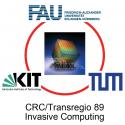W04 6th Workshop on Design Automation for Understanding Hardware Designs (DUHDE6)
Agenda
| Time | Label | Session |
|---|---|---|
| 07:30 | W04.1 | Registration Desk opens |
| 08:30 | W04.2 | Workshop opening Moderators: |
| 08:45 | W04.3 | Invited talk: Addressing Integrated Circuit Integrity Using Statistical Analysis and Machine Learning Techniques Speaker: Bio: Burcin Cakir received her B.S. degree from Electrical Engineering Department of Bilkent University, and her Ph.D. degree from Princeton University. Her research motivation is formulating models that can represent real systems accurately and express mathematical bases/frameworks for further analysis. She had experience in developing algorithms and analyses to help design secure hardware systems. She is a recipient of Francis Robbins Upton Fellowship award from Princeton University. Her work on Hardware Trojan detection received Best Paper Award at DATE Conference (2015). She also has served as a referee on various journals and conferences and gave workshop and seminar talks. Besides her work at Princeton, she also had experience in industry research with two internships at Microsoft Research (MSR) in Redmond and Cambridge Labs. |
| 09:30 | W04.4 | Paper presentation block 1 Moderators: |
| 09:30 | W04.4.1 | Towards Gate-Level Design of QCA Circuits |
| 10:00 | W04.5 | Coffee break 1 |
| 10:30 | W04.6 | Paper presentation block 2 Moderators: |
| 10:30 | W04.6.1 | Deductive Binary Code Verification Based on Source-Code-Level ACSL Specifications |
| 11:00 | W04.6.2 | Extracting Assertions for Conflicts in HDL Descriptions |
| 11:30 | W04.6.3 | Complete Specification Mining |
| 12:00 | W04.7 | Lunch break |
| 13:00 | W04.8 | Invited talk: Reverse Engineering for Security: Views From the Top and the Bottom. Moderators: Speaker: Abstract: Recent years have seen much hand-wringing about security concerns posed by malicious hardware designs. Seemingly at the other end of the spectrum are inadvertent hardware design flaws that lead to security breaches. The former concern has led to development of algorithmic reverse engineering techniques, Hardware Trojan detection algorithms and side-channel analysis algorithms -- all of which aim to algorithmically discover malicious behavior from the bottom up. The latter concern has led to the progress in top-down security verification techniques based on model checking and syntax-guided synthesis. In this talk, I will try to review some recent progress in both top-down and bottom-up analysis. I will argue that both top-down and bottom-up techniques can synergistically benefit each other. Bio: Pramod Subramanyan is an Assistant Professor in the Department of Computer Science and Engineering at the Indian Institute of Technology, Kanpur. He obtained his Ph.D. from Princeton University and subsequent to his Ph.D., he was a postdoctoral scholar at the University of California, Berkeley. His research interests lie at the intersection of systems security and formal methods. His current research is focused on system-building techniques that can provide verifiable guarantees of security. Pramod's research has won several awards including the Best Paper Award at the ACM Computer and Communication Security conference, the ACM SIGDA Outstanding Ph.D. Dissertation in Electronic Design Automation Award, the Best Student Paper Award at IEEE Symposium on Hardware-Oriented Security and Trust. |
| 14:00 | W04.9 | Paper presentation block 3 Moderators: |
| 14:00 | W04.9.1 | Generating a UML Sequence Diagram from a Natural Language Scenario Description |
| 14:30 | W04.10 | Coffee break 2 |
| 15:00 | W04.11 | Invited talk: Project Trellis: open bitstream documentation for the Lattice ECP5 FPGAs Moderators: Speaker: Abstract: |
| 16:00 | W04.12 | Paper presentation block 4 Moderators: |
| 16:00 | W04.12.1 | Engineering of an Effective Automatic Assertion-based Verification Platform |
| 16:30 | W04.12.2 | Design Mapper: Dataflow Analysis for Better Floorplans |
| 17:00 | W04.12.3 | Using AI for the Performance Verification of High-End Processors |
| 17:15 | W04.12.4 | The Verification Cockpit - Harnessing Data Analytics for the HW Verification Process |
| 17:30 | W04.13 | Workshops end |















